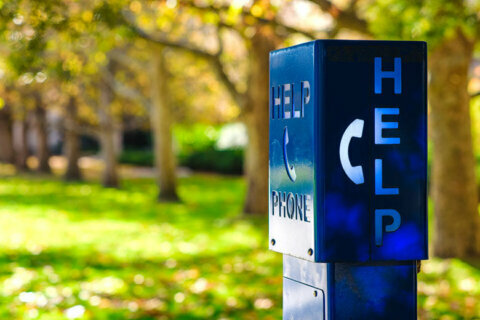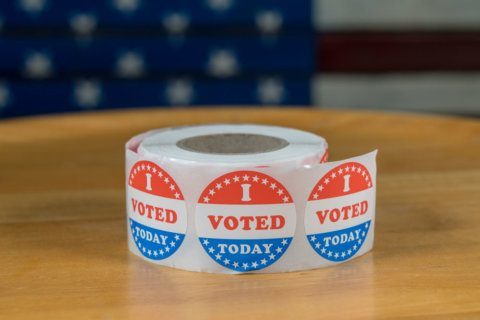Virginia lawmakers advanced anti-discrimination bills, driving changes and worker protections Wednesday during the General Assembly in Richmond.
In a powerful speech on the House floor, the first openly transgender delegate in Virginia said a bill passed by the House 59-39, banning discrimination based on sexual orientation and gender identity, is sorely needed.
Del. Danica Roem, a Democrat who represents the Manassas area, was responding to Del. Dave LaRock, a Republican who represents part of Loudoun County, who opposed the bill on the grounds that it would be unfair to people, such as a public school teacher who insisted on continuing to call a student “she” despite being asked to refer to him as “he.” The teacher cited religious beliefs.
Roem said that she has met that student, who she identified as James. Roem also met another student she identified as Morgan, who was left in a hallway during a lockdown drill because the school did not want to let her into either the boys’ or girls’ locker rooms.
“If you believe in a deity, then you have to understand that that deity made James who he is, and made Morgan who she is,” Roem said.
“I was too afraid to be them. I was too afraid to tell anyone who I was because that stigma and that fear is so real. You have no idea what it’s like to be Morgan or what it’s like to be James. You don’t know until you have lived it, until you have cried yourself to sleep over it,” she said.
A few Republicans joined Democrats to support the measure.
The Senate is expected to approve a similar bill Thursday on a party-line vote after Republican attempts to change the bill were rejected Wednesday afternoon.
The House could approve another bill Thursday, allowing local governments to add sexual orientation and gender identity protections to their local nondiscrimination policies, as well.
Transportation
The Senate voted 21-18 to allow Virginians to select either male, female or “nonbinary” on their driver’s license applications, which other states have allowed as an “X” rather than an “M” or “F” on the license.
Other driving-related bills approved included the House voting 72-24 to ban handheld cellphone use by drivers, and a 53-44 vote to allow state police or local law enforcement to implement speed cameras in school crossing zones.
The Senate also voted 31-8-1 to raise the minimum amount that car insurance must cover from $25,000 to $35,000 for a single death or serious injury, and from $20,000 to $40,0000 for major property damage.
More worker protections
The House passed a series of worker protection bills, including a ban on asking job applicants about past salary history and a ban on retaliation against workers who file complaints about unpaid wages and report violations of the law. They also passed a bill banning companies from restricting discussion among workers about their salaries.
The House also voted to allow state and local agencies to use project labor agreements, to broaden investigations into unpaid wages, to let workers sue if they are wrongly classified as an independent contractor, and to prohibit noncompete clauses for low-wage workers.
A bill that passed the House 85-14 removes an exemption that allows employers to pay lower wages to people with disabilities.
The Senate voted 28-12 to add state employer tax deduction for commuter transit benefits.
Other action
The Senate approved a change that would only require courts or jails to report someone suspected of being in the United States illegally to federal immigration officials if convicted or in custody for a felony.
Current law requires reporting when the person is taken into custody.
The bill that passed 21-19 would still allow local officials to report the person in other cases.
The House is expected to vote by the end of the week to approve a separate bill that would bar law enforcement from probing the immigration status of a crime victim, witness or the adult guardian of a juvenile crime victim or witness.
The House also voted to ban the new recording of any property deeds that have references to illegal restrictive covenants that aimed to prevent people from moving into an area due to their race, religion, color, national origin, sex or other reasons.
The bill would create a form for a property owner to sign to repeal the restriction from the deed.
The restrictions aimed to keep African Americans, Jewish people and other minorities out of certain areas until just a few decades ago.
The House voted to repeal a law found to be unconstitutional — the so-called interdiction law. Delegates voted 91-7 to repeal the provision that allows a court to prohibit the sale of alcohol to a person who is known as a habitual drunkard and has other alcohol-related violations.
The Senate backed online alcohol sales by Virginia distillers.
All of the bills head across the state Capitol for consideration by the other chamber over the next few weeks.
Through Tuesday night, the chambers rushed to finish their own bills, since any that do not pass one chamber by Tuesday night can no longer advance for the year.







